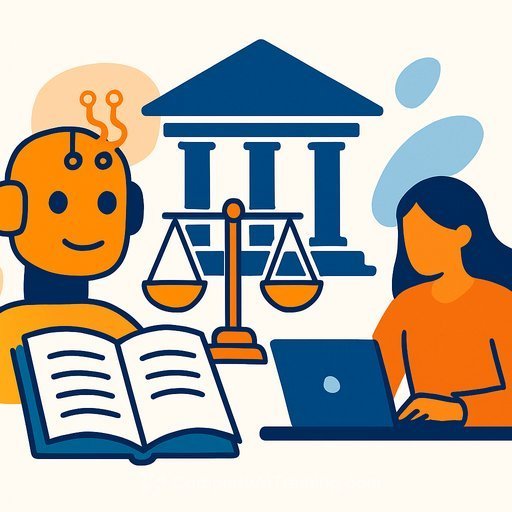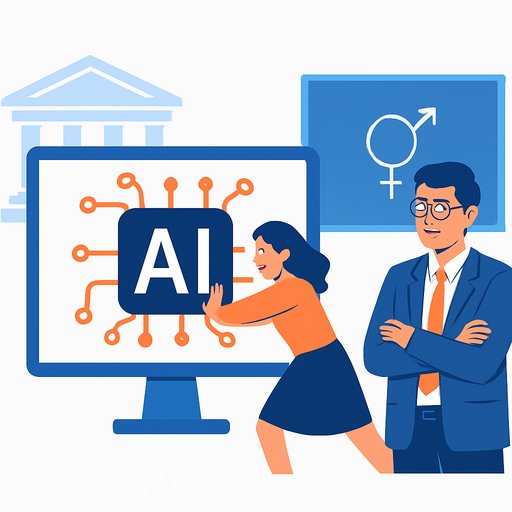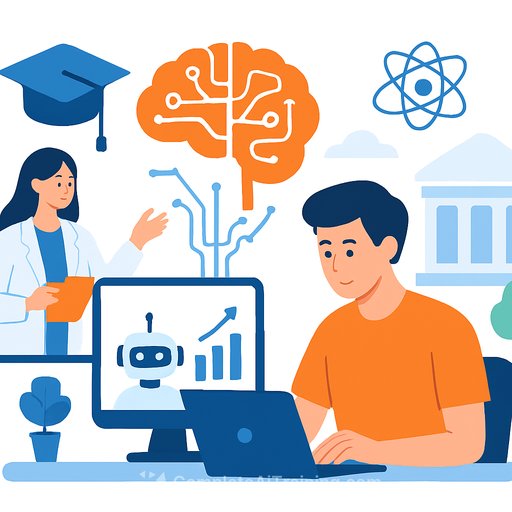AI use grows in Indian B-Schools, but only 7% of faculty are experts: Survey
Indian B-schools are increasing their use of generative AI across teaching, research, and curriculum design. Yet only 7% of faculty identify as expert users, and just 51% are confident that AI has a favourable impact on student learning.
A survey of 235 faculty from leading institutions (IIMs, IITs, ISB, XLRI, SPJIMR, MDI, NMIMS) shows strong momentum, mixed confidence, and clear gaps in capability and policy. Most expect AI's role to grow in the next 12 months.
Key findings at a glance
- Primary uses: Research and teaching lead adoption; curriculum development is growing. Administrative tasks and assessment are still early-stage.
- Faculty proficiency: 7% experts, 55% intermediate, the rest beginners - signalling a need for structured upskilling.
- Perceived impact on students: 51% favourable, 21% say it's too early to assess, 18% unfavourable, ~10% no significant impact.
- Tools on campus: ChatGPT rated most relevant for teaching; Microsoft Copilot and Perplexity follow. Google Gemini and Claude received moderate ratings; Meta AI was lowest.
- Top concerns in research use: Ethical/integrity risks, inaccuracies or unreliable outputs, and lack of regulatory policy.
Why this matters for education leaders
Faculty see value but are split on learning outcomes. Without clear policy, assessment redesign, and targeted training, adoption can outpace guardrails.
As Vineet Joshi, Secretary, Department of Higher Education, noted, AI can give "every student the freedom to ask questions" and help remove barriers of language and background. The opportunity is real; the execution needs structure.
What to do next: A practical playbook
Use the momentum to build capability, protect integrity, and align classroom use with learning goals.
- Build faculty capacity
- Run short, role-based workshops: research use, teaching workflows, and curriculum design.
- Offer hands-on sandboxes with clear prompts, evaluation checklists, and risk flags (bias, hallucinations, confidentiality).
- Create a peer network to share prompts, cases, and rubrics that work.
- Refresh curriculum
- Integrate AI policy literacy: disclosure norms, citation of AI assistance, data privacy basics.
- Teach prompt strategies, output verification, and decision accountability.
- Embed AI across core courses (marketing, finance, ops) with live cases and tool-agnostic assignments.
- Redesign assessment
- Mix process-based grading (version history, reasoning logs) with oral defenses and in-class tasks.
- Use scenario prompts that require data interpretation, critique, and synthesis over generic output.
- Add clear "allowed vs disallowed" AI-use sections in every assignment brief.
- Strengthen research integrity
- Mandate disclosure of AI assistance in methods and acknowledgments.
- Adopt verification workflows: source checks, replication attempts, human review on claims and citations.
- Create an AI-use log template for projects and theses.
- Set governance and policy
- Publish a simple, living AI policy for teaching, research, and administration.
- Evaluate tools for data handling, cost, accessibility, audit trails, and alignment with institutional policies.
- Provide quick reference guides and decision trees for staff and students.
Choosing and piloting tools
- Start with a small stack: one general assistant (e.g., ChatGPT or Copilot) plus a research assistant (e.g., Perplexity) for retrieval and citations.
- Pilot in two courses and one research lab; document outcomes and issues before wider rollout.
- Compare outputs across tools for the same task; track accuracy, bias, and classroom fit.
Addressing ethical and integrity concerns
- Define disclosure norms, acceptable use, and consequences upfront.
- Teach verification habits: source tracing, cross-checking facts, and citing AI assistance.
- Use institution-approved accounts to manage data risks and maintain logs.
Leadership signals from the conclave
The report was released at the 15th Indian Management Conclave. Amit Agnihotri highlighted that AI is set to change business processes, jobs, competencies, and higher education - placing management education at the frontline of this transition.
Helpful resources
The takeaway: adoption is rising, confidence is mixed, and capability building is the unlock. Start with clear policy, focused training, and assessments that reward thinking over output. Scale what works.
Your membership also unlocks:






